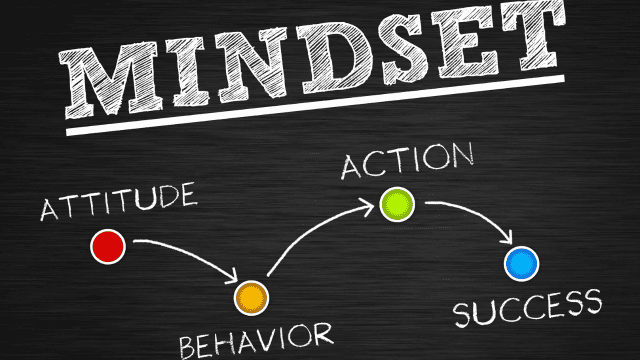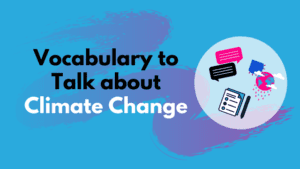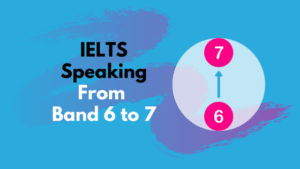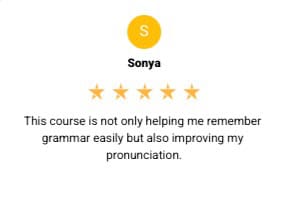10 Simple Steps to Become Fluent in English
👇 Take this lesson with you! 👇
Table of Contents
Be Intentional
When you are reading, listening or speaking English, you need to know why you are doing that.
Of course, it is to improve your English, but which specific skill are you focusing on?
For example, if you are listening to English, what is your goal?
- to learn certain vocabulary?
- to repeat and improve your pronunciation?
- to understand the general meaning?
- to get the melody of English?
It’s important to decide before you listen.
Be intentional.
Know exactly what your specific goal is for listening, then listen.
It’s the same for other skills, for example, speaking.
Why are you speaking?
- to practice fluency?
- to practice accuracy?
Once you know why, this this will determine how you practice and what you focus on.
Processing Language Takes Time
Sometimes, students tell me they have just learnt some new words, but find it hard to use them straight away.
This is normal.
You can’t just study vocabulary or grammar and expect to use it smoothly immediately.
Language needs time to settle in your mind, to become a part of you. Maybe days, maybe weeks.
The important thing is that you study, practice and review. But also you need to change your expectations.
Don’t expect to use things instantly.
Be patient.
It’s a bit like making bread or steamed buns. You make the dough, but you then have to leave it for some hours to rise before you can use it.
Same with language. Give it time to settle in your brain whilst you continue to study, practice and review.

Expose Yourself to More English
If you’re relying only on textbooks, you might not be getting enough exposure to the language.
Remember how you learned your first language?
You spent hours watching TV, days talking with friends and years listening to teachers.
That constant exposure is key to becoming fluent.
Using a course book is not enough.
Listen and read more.
If you’re already at an intermediate level, it’s time to challenge yourself. Start watching movies, listening to podcasts and reading novels in English.
Notice
This is an idea I learnt from Steve Kaufmann, an amazing polyglot. He says that when you read and listen, you should actively notice language.
Be curious and notice things like,
- collocations
- grammar
- patterns
- word stress
- intonation
This curiosity and noticing will make a huge impact on your learning and fluency.
Learning is Messy
Many students think learning English is linear.
As a beginner you learn the present tense, then the past, and after that, the future tenses. We think our learning grows in a straight line, but in fact this is not true.
As I mentioned earlier, you brain needs time to process language.
Learning is messy.
Some days you will be great, some days you will go backwards and think, ‘why is my English so bad today?’
This is normal, don’t worry!
The important thing is the trend is advancing – like the stock market. There are ups and downs, but you overall progress is upwards.
So, just remember, learning is messy, and accept it!
Make it Fun
Learning a language and becoming fluent is a marathon. It will take time, so you need to be very motivated.
If you make sure your learning is fun, you have a better chance of succeeding. If you don’t enjoy it, you will give up and never be fluent.
I have recently started brushing up on my French and here are a few ways I make my French study fun:
- I have joined an online course
- I practice with other students on the course
- I use ChatGPT to brainstorm vocabulary before a lesson
- I use voice software to make audio files to practice repeating with
- I also practice speaking with ChatGPT AI voice Mia
- I find a podcasts I like, with people, topics and voices I like.
- I read Tintin magazines
There is so much you do. Spend time with the language and personalise your actives to make them more fun.
Create a habit
This is key to learning anything, including languages where short regular practice is better than long one-off sessions.
Try and choose a day, time and place where you will always study.
Prepare the things you will do before you do them. So, have a plan for a week, month or longer, so you don’t have to think about planning activities, you just sit down to learn and do whatever is in your plan.

Repetition
Repetition is a key part of learning to speak a language.
Most students don’t do enough.
Repetition combined with Noticing (mentioned above), is a very powerful force to help you become more fluent.
You can repeat words and phrases
You can try shadowing short audio files
You can mimic your favourite actors or Youtube stars
Make this ‘listen and repeat’ a key part of your study routine, even right up to the Advanced level.
Create the Right Mindset
Just like sportsmen, we need to have the right mindset to be successful in language learning.
A simple acronym I use for this is ASEP.
A – ccept where you are.
You are not weak or poor in English! There are things you know, and things you don’t know yet. Accept your level and continue studying.
S – tep by step.
Study one step at a time. Make small goals and you will see small, positive steps of progress. Don’t try to become fluent in 3 months. It won’t happen.
E – mbrace mistakes
You will and should make mistakes. So many students get frustrated with mistakes and are afraid of them. Don’t be.
Love your mistakes, accept them and learn from them.
P – ositive – you can do it.
Think that you can learn English. You can make progress. You can speak confidently. Whatever you think, will probably be true.

Use Emotion
When you learnt grammar at school it may have been boring, unless you were lucky and had a good teacher.
However, many teachers and books teach us to repeat boring grammar drills with a monotonous voice.
For example,
Present Simple
I eat fast food
He eats fast food
I don’t eat fast food
He doesn’t eat fast food
What we forget is that English is about communicating your ideas and emotions.
So when practicing these grammatical phrases, we shouldn’t forget emotion.
Use emotion in your voice. Say these phrases with different emotions. You could say them with happiness, guilt, anger or amazement.
Practice repeating in these ways, and remember to use emotion in all your speaking practice too.
This will help you move from ‘robotic’ or ‘bookish’ English, to real English!
There you go, now you know what students who become fluent speakers know and do.
I suggest you start putting these into practice too.
Maybe just choose one or two and start working on them.
You might enjoy working on your own, that’s fine.
I also hope my videos can support you, and help you become more fluent in English.
If you are enjoying these videos and you can understand me and you are learning something new, then you are already on your way to becoming a more fluent and confident speaker.
If you want to speed up your transformation, you may want to join my IELTS Speaking Gold course.







2 thoughts on “10 Simple Steps to Becoming Fluent in English”
Hello Keith
I’m totally into the way you teach and you motivate me.
It’s been a long time almost two years I improve my skills in English. I follow your advice I take time and I’m ok with but I feel that what I’ve done it’s not enough and I would like to join your course goal
Thanks for your very good mood and the motivation you’re done
See you soon on your gold course
Excellent – I look forward to seeing you in the Gold course. 👍